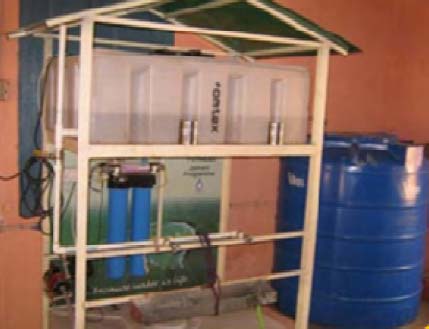/topics/lifestyle
Lifestyle
Reap what you sow, eat what you grow A film by Suma Josson on urban community farms promoted by Urban Leaves in Mumbai
Posted on 24 Sep, 2011 06:21 PMReap what you sow, eat what you grow - A film by Suma Josson
It depicts how applying ecological principles and practices to maintain soil fertility, to manage crop health, and to keep soil and water in a good condition is especially relevant to the urban setting. The film focuses on the work being done in the urban farms, yet it can be seen as much more than that and, understood as a vision on healthy products, healthy production systems and as a way of life.
"The water in springs of my hills is cool, do not migrate from this land, o my beloved" - Solving water shortages through ancient knowledge
Posted on 24 Sep, 2011 12:33 AMAuthor: Anupam Mishra
"The water in springs of my hills is cool, Do not migrate from this land o my beloved.”
Tata Institute of Social Sciences invites papers for a three-day Conference on Globalisation and Social Transformation in Mumbai – Apply by September 30, 2011
Posted on 17 Sep, 2011 08:50 PMOrganizer: Tata Institute of Social Sciences
Venue: Mumbai

The Tata Institute of Social Sciences (TISS), Mumbai is a reputed institution that has influenced the direction of social work education and social research in India. It has earned recognition as an institution of repute from different Ministries of the Government of India, various State Governments, international agencies such as the United Nations, and the non-government sector, both national and international.
Cost-effective urinals established for Musiri Boys High School, Trichy - A case-study of UNICEF- IIT-Delhi's project SCOPE
Posted on 17 Sep, 2011 07:04 PMGuest post by: SCOPE
Forwarded to the Portal by: Ramesh Sakthivel
Basanti and the Kosi: How one woman revitalized a watershed in Uttarakhand
Posted on 07 Sep, 2011 03:22 PMGuest post by: Chicu
Assessment of Jalamani programme on stand alone water purification systems in rural India - A report by Centre for Media Studies
Posted on 03 Sep, 2011 04:50 PM This report by the Centre for Media Studies, New Delhi presents an assessment of the Jalamani programme of the Department of Drinking Water Supply, Government of India. The centrally sponsored programme commenced in 2008-09 aimed at installing simple Stand Alone Water Purification Systems (SAWPS) in rural schools to enable school children to have access to safe and clean water. The focus was on tackling bacteriological contamination and turbidity in ongoing rural drinking water supply programme.
This report by the Centre for Media Studies, New Delhi presents an assessment of the Jalamani programme of the Department of Drinking Water Supply, Government of India. The centrally sponsored programme commenced in 2008-09 aimed at installing simple Stand Alone Water Purification Systems (SAWPS) in rural schools to enable school children to have access to safe and clean water. The focus was on tackling bacteriological contamination and turbidity in ongoing rural drinking water supply programme.
The assessment study used both qualitative and quantitative techniques such as focus group discussions and in-depth interviews besides structured questionnaire for a variety of stakeholders and research questions. Another important aspect of the quantitative tools was testing of the raw and treated water samples. The study was undertaken in 320 schools spread across 20 districts and six states.
Communal toilets in urban poverty pockets - A WaterAid report
Posted on 02 Sep, 2011 12:39 PMThis report published by WaterAid describes the findings of the study conducted in seven poverty pockets in Bhopal to look at patterns of use of communal latrine facilities. Much has been invested in building communal and public toilets and more resources are likely to continue to support this form of sanitation in dense urban areas in India.
However, there is no evidence available that is needed to quantify their potential contribution to reducing open defecation and faecal pollution in these environments, and identify those design features and management factors that encourage the highest usage rates by all household members. Also there is no information available on the impact of age and gender related differences in patterns of use.
Tribal movements and livelihoods – Recent developments in Orissa – A working paper by CPRC-IIPA
Posted on 31 Aug, 2011 08:48 PMFor the last few decades and more particularly since 1990’s the issue of human rights-violation of rights to life and livelihood of tribal peoples’ is a central concern. Therefore, the discourse on tribal movements and issues of tribal livelihood revolved around securing their well-defined rights on land and forest resources.
Integrated approach to solid waste management in Pune city – A working paper in MPRA
Posted on 31 Aug, 2011 07:02 PMSolid waste is increasing in the city due to growth of population, urbanization, higher per capita income and standard of living, changing lifestyle and food habits.
The first section of the paper explains about the structure of the solid waste in the city. The solid waste according to its constituents is presented in the second section. The third section of the paper explains about the regression result. The last section deals with the policy implication and conclusion.





